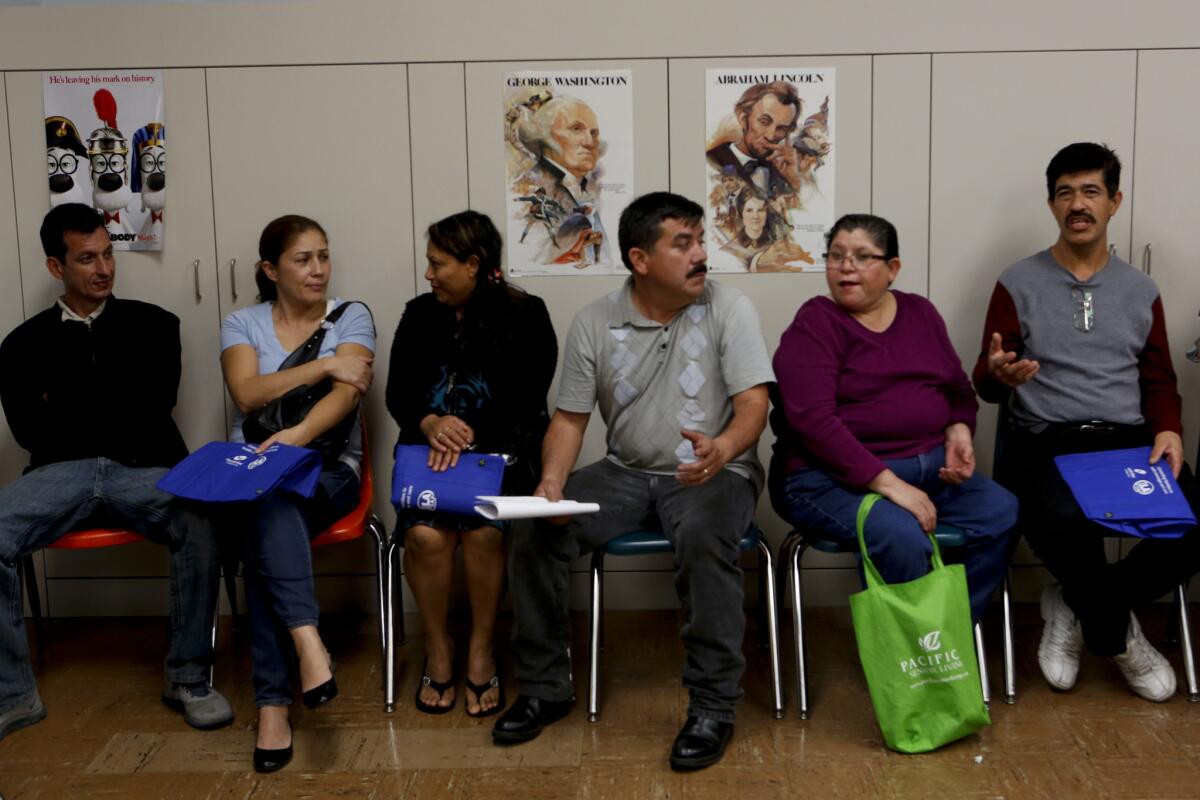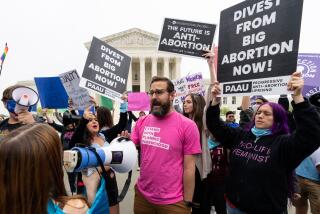U.S. Supreme Court decision could curtail Medi-Cal lawsuits

Reporting from Sacramento — During California’s budget crisis, attempts to cut costs by reducing public services often became tied up in litigation. But on Tuesday, the U.S. Supreme Court significantly curtailed that legal avenue for advocates protesting spending cuts.
The justices, in a 5-4 decision, said healthcare providers could not sue when they think Medicaid rates in their state are too low.
Writing in the majority opinion, Justice Antonin Scalia said doctors, pharmacists and others would have to register their objections with federal authorities who oversee the Medicaid program rather than file lawsuits.
Lynn Carman, a San Francisco lawyer who has represented California pharmacists and founded the Medicaid Defense Fund, said the decision will make it harder to ensure poor patients can get healthcare through government programs.
“It’s a disaster,” he said. “It permits state officials to violate federal law with impunity.”
Although the case decided on Tuesday originated in Idaho, the issue has been a potent one in California, where Medicaid is handled through the Medi-Cal program.
Federal officials have sometimes approved the state’s cuts in healthcare spending only to see the reductions blocked by court injunctions.
Such injunctions, even when they’ve eventually been overturned, have cost the state more than $1.5 billion since 2008, according to a brief filed by California Atty. Gen. Kamala Harris.
The lawsuits “have affected California’s budgeting decisions during a severe fiscal crisis,” the brief said.
A 10% cut in Medi-Cal rates was temporarily blocked before it was allowed to take effect by a 2012 ruling from the U.S. 9th Circuit Court of Appeals in San Francisco.
However, that court had recognized the right of doctors to file their lawsuit over the rates, something the U.S. Supreme Court weakened in its Tuesday decision.
The California Department of Health Care Services said it was the right outcome.
“We are pleased that the U.S. Supreme Court has reaffirmed the contractual relationship between states and the federal government for the operation and administration of Medicaid programs,” spokesman Norman Williams said in a statement.
Molly Weedn, spokeswoman for the California Medical Assn., which represents doctors, downplayed the impact of the ruling on the organization’s ability to protest low rates.
“Preliminary evaluation of the court’s decision shows that as we continue to pursue action around Medicaid rates in California, viable options remain available,” she said in a statement.
Follow @chrismegerian for more updates from Sacramento.
More to Read
Sign up for Essential California
The most important California stories and recommendations in your inbox every morning.
You may occasionally receive promotional content from the Los Angeles Times.










